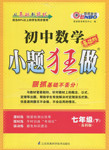题目内容
【题目】阅读理解
A Special Appointment
Years ago I moved to Woodland Hills to take a job in a smallhospital’s emergency department. No one wanted to work on Christmas Eve, so theshift (轮班) went to me. I kissed my family goodbye and went off to spendthe night in the hospital. It was a thankless job.
At 9 pm, the ambulance brought in a man in his 60s who washaving a heart attack. His face was pale, and he was frightened. The wholenight I did my best to save his life. Before I left in the morning to spendChristmas with my family, I stopped by to see how he was doing. It was stilltough, but he had survived the night and was sleeping.
The following year I got Christmas Eve duty again. At 9 pmsharp, the ward clerk told me there was a couple who wanted to speak with me.When I approached them, the man introduced himself as Mr. Lee and said, “Youprobably don’t remember me, but last Christmas Eve you saved my life. Thank youfor the year you gave me.” He and his wife hugged me, handed me a small gift,and left.
The following year a new doctor had joined the group, but Iwanted to see if Mr. and Mrs. Lee would return. This time, I volunteered forthe shift. I kept an eye on the door. Once again, at exactly 9 pm, the Leesappeared, carrying a warmly wrapped bundle. It was their new grandchild. Mr.Lee, his family and I spent 13 Christmas Eves together. In the later years thestaff all knew about the story and would work to give me time with him in thebreak room, where we spent a half-hour each Christmas Eve.
The last year I saw him, he brought me a gift. I carefullyopened the package and found a crystal (水晶) bell inside.It was engraved (镌刻) with asingle word: Friendship. Now, my family, friends and I ring that bell everyChristmas Eve at exactly 9 pm and offer our best wishes to the man who we won’tforget.
(1)Working on Christmas Eve was considered “a thankless job” because ______.
A.most patients were seriously ill
B.patients refused to express thanks
C.doctors had nothing to do on that day
D.doctors couldn’t get praise for the hard job
(2)When the author left the hospital the next morning, Mr. Lee ______.
A.was still in a state of danger
B.was really angry with her
C.got ready to leave the hospital
D.recovered from his heart attack
(3)According to the passage, the author formed a habit of ______.
A.celebrating Christmas Eve with her family
B.giving Christmas gifts to the hospital staff
C.spending Christmas Eve with Mr. Lee in hospital
D.ringing the bell for patients in the emergency department
(4)Why does the author ring the bell on Christmas Eve?
A.To honor her working experience.
B.To tell kids the traditional custom.
C.To remember an old friend of hers.
D.To show the beginning of the holiday.
【答案】
(1)D
(2)A
(3)C
(4)C
【解析】本文是一篇记叙文。几年前作者刚搬到伍德兰山在一家规模不大的急诊室上班,那个圣诞夜的值班让她终身难忘
(1)D 考查细节理解题。根据第一段提到No one wantedto work on Christmas Eve, so the shift (轮班) went to me平安夜值班是件吃力不讨好的工作,故选D项
(2)A细节理解题。根据文章第二段Before I leftin the morning to spend Christmas with my family, I stopped by to see how hewas doing. It was still tough, but he had survived the night and was sleeping.可知,作者第二天离开医院时,Mr. Lee并不太好,但马上没有生命危险,故选择A项。
(3)C考查推理判断题。根据第四段提到Mr. Lee, hisfamily and I spent 13 Christmas Eves together.可知14年来作者与李先生一家都在医院庆祝平安夜,故选C项。
(4)C 考查推理判断题。根据第五段提到Now, myfamily, friends and I ring that bell every Christmas Eve at exactly 9 pm andoffer our best wishes to the man who we won’t forget他们敲那个钟为了纪念李先生,故选C项。

 小题狂做系列答案
小题狂做系列答案